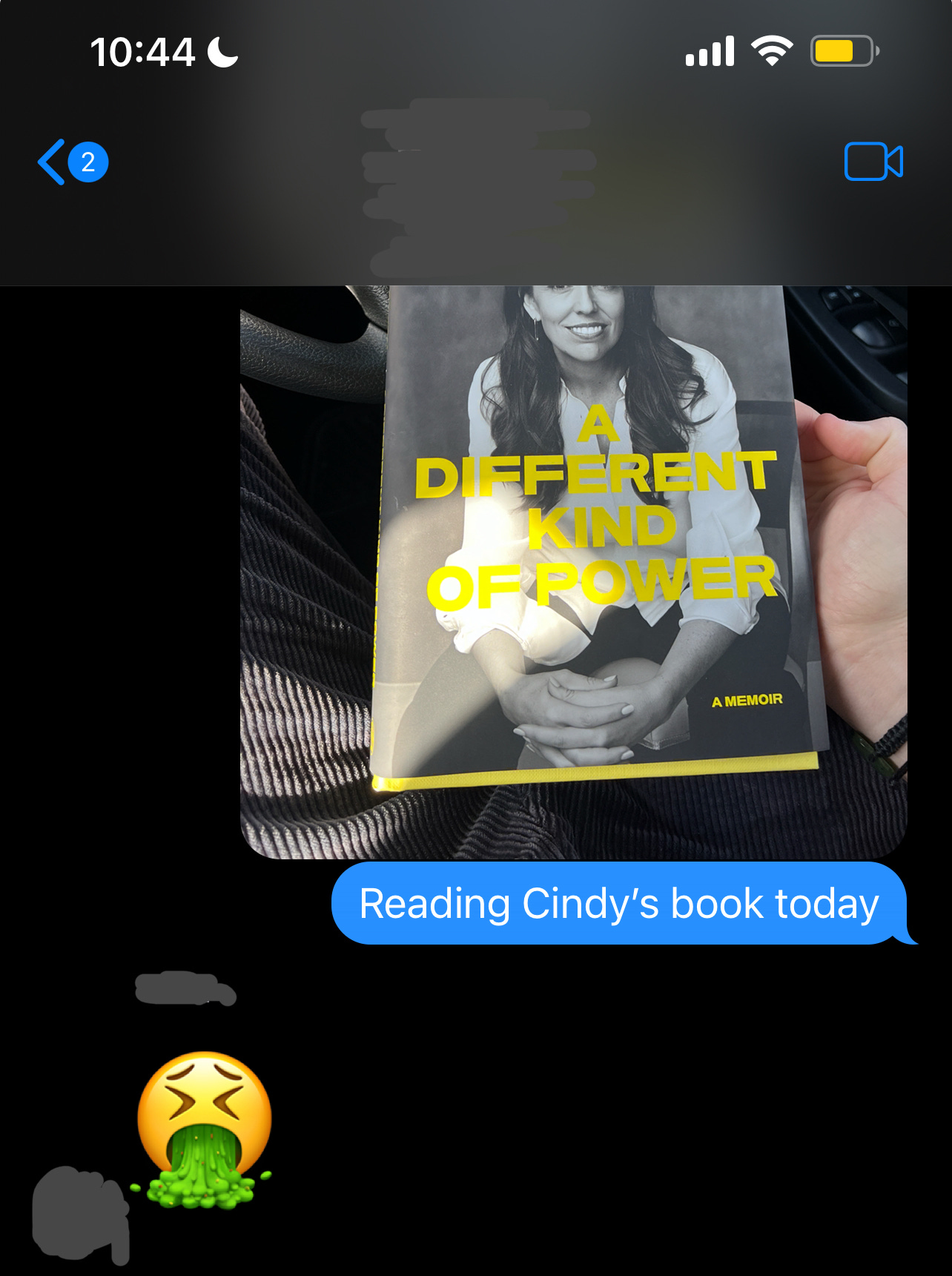My thoughts on Jacinda Ardern's new book
It's less about politics, and more about what it means to lead with heart - which is certainly a different kind of power to what we see around us today.
Hey friends,
Jacinda Ardern made Matariki, the Māori New Year, a public holiday in Aotearoa New Zealand while she was Prime Minister. This Friday marked the fourth time we’ve got the day off to celebrate it.
My Matariki was quiet, cosy, and calm - exactly how I wanted it to be. How’d I spend it? By reading Jacinda Ardern’s new book from front to back, of course.
I’ve always felt a bit connected to Aunty Cindy. Not just because her decisions shaped our lives for years, but because she feels kinda close to home.
She grew up in a small rural town, went to Waikato Uni, and studied communications and PR. Relatable stuff, although that’s probably where our similarities end.
I was curious to read her memoir (a self-written recount of her life so far) for mostly that reason. One of the most internationally recognised leaders of the decade, with roots right here in the Waikato, once walking the same campus paths and sitting in the same lecture halls as I did. That’s pretty cool!
I heard a fair bit about the book before I got a copy. Jacinda had a very successful press run, almost entirely overseas, which included long-form conversations with the likes of Oprah, Stephen Colbert, and NPR - and little old RNZ over here too. The vast majority of the coverage was positive.
Although she spent little time on New Zealand promo, regular critics of Jacinda made some noise - inadvertently boosting book sales I’m sure. Acting Prime Minister David Seymour gave his review on ‘alternative’ media outlet The Platform, calling out Jacinda for her lack of self-awareness and used it as more evidence that ‘she should never have been Prime Minister’.
And with that, I sat down on my beanbag, $39 later, and gave it a read.
As you’d expect from a Waikato grad.. Jacinda is a brilliant writer and has written a very readable book. It’s warm, funny, informal, and with a voice that sounds just like her - positive, friendly, thoughtful. It’s nice to hear her optimistic tone in a world that’s so pessimistic. Her extremely personal, vulnerable storytelling kept me engaged the whole way through.
Much of the book focuses on Jacinda’s early life - she doesn’t leave university until about halfway through. But that focus makes sense. To understand the adult, you need to understand the child. Each character throughout her childhood story serves to help explain why Jacinda is the way she is now.
But you soon realise that this is a celebrity memoir, rather than a political one. If you were hoping for much reflection on her political decisions, you’ll be left wanting. She does share how she felt during major events, but she doesn’t go deep into the decisions themselves. There’s a kind of restraint there - she’s open about her upbringing and deeply vulnerable, but when it comes to her politics, she manages to still hold her cards close to her chest in a way.
I was eager to get to the part where she talks about the Covid years - the controversy, hate and violence, immense pressure, maybe even mistakes. But when we finally get there, there’s a few chapters and then that’s the end of the book! It felt like there was so much more to unpack.
It’s pretty clear the book was written for an international audience, not us Kiwis. She excluded domestic political detail and reflection for things that resonate more globally. She doesn’t deal with the more tricky challenges to her legacy. As an international reader, you’d have little idea that she left a sour taste in many New Zealander’s mouths.
And fair enough of Jacinda, I reckon! It’s her story, a personal recount - memoirs are one-sided, and that’s okay.
Instead, she focuses on the broader idea that kindness and empathy are powerful forces in leadership. The whole book is centred around this philosophy that empathy, compassion, sensitivity, and vulnerability aren’t weaknesses in leadership - they’re strengths.
Jacinda says she isn’t naturally ‘tough’ and often doubted whether she was ‘hard enough’ to lead. But she now believes that what made her soft also made her a better leader.
She challenges the teaching that empathy is a weakness and self-doubt is a problem, and repeats throughout the book that disagrees with this lesson we’re taught. But I feel like we’re constantly being told having empathy is the single greatest virtue these days?? I guess the tension is more about how people interpret empathy in positions of power, especially when it comes from a woman.
What stuck with me the most throughout the entire book was the sacrifice that comes with a role like hers, particularly as a woman. She writes about her family, her partner, her daughter, her struggles with getting pregnant and being a mother while leading the country. It’s really interesting, and very admirable.
There’s been criticism of Jacinda for ‘using’ her daughter too much publicly, but I’m not really sure what people mean by that. In the book, you read intimate details about her sacrifice. You come away with a real sense of just how much she gave up, and how much her family gave up too, for her to do the job she did. Of course she’s gonna talk about her daughter - she is rightly a huge part of her story.
Overall, the book is less about politics, and more about what it means to lead with heart - which is certainly a different kind of power to much of the leadership we see around us today. Despite missing some of the tell-all reflection I was curious about, it was personal, emotional, human, and great food for thought.
Ben x






